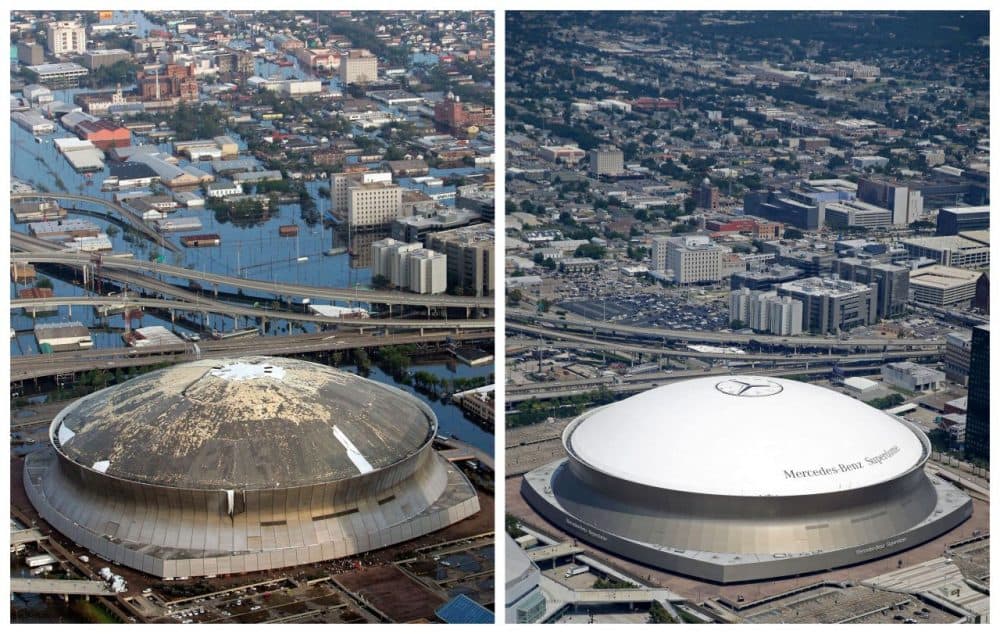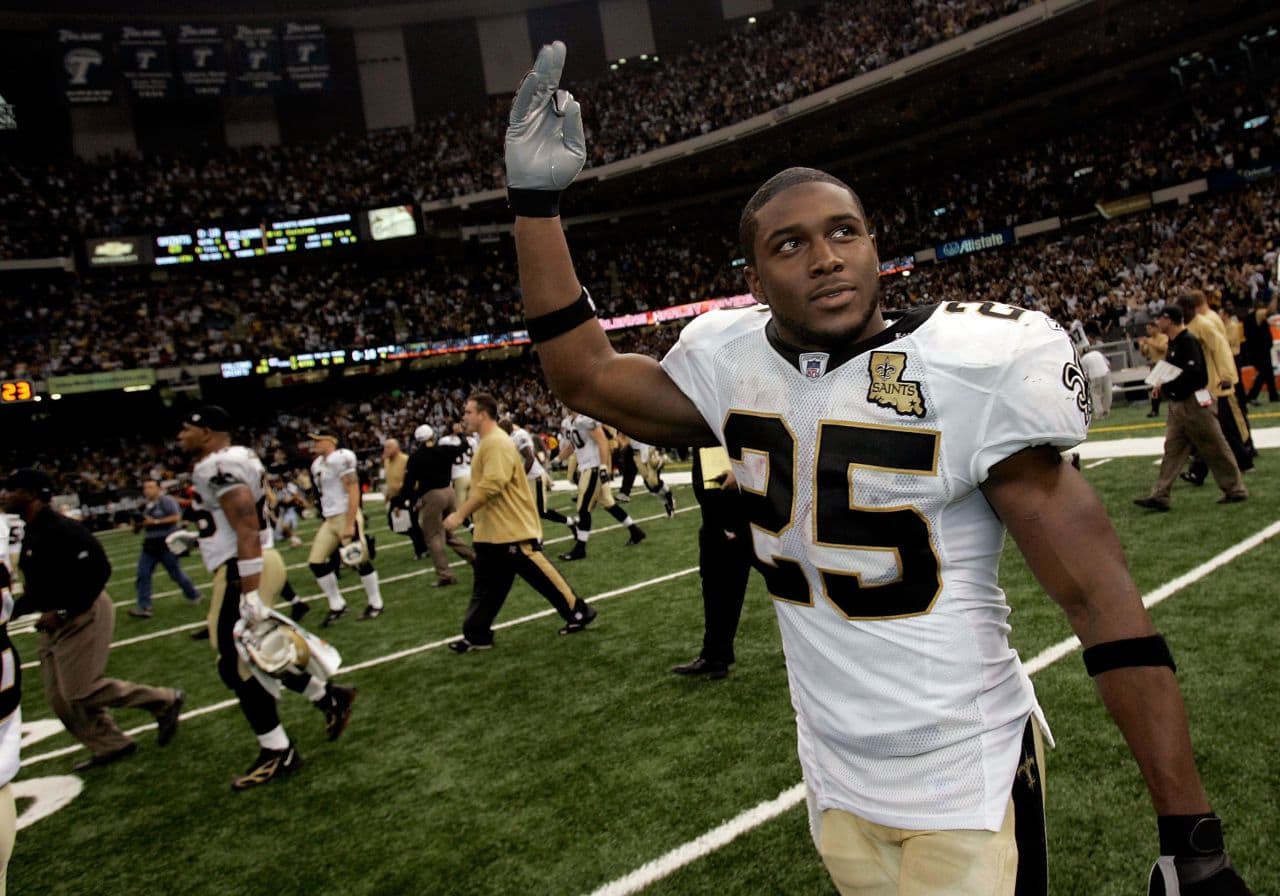Advertisement
10 Years Post-Katrina, The Role Of Sports In New Orleans' Recovery
Resume
Ten years after Hurricane Katrina swamped much of the gulf coast, the recovery is still not complete. But in a story this week, Sports Illustrated’s Tim Layden pointed out the extent to which sports has contributed to what has been accomplished in New Orleans. He spoke with Bill Littlefield.
BL: Doug Thornton is a former college quarterback. He was also the chief executive for the Superdome on August 29, 2005. How does he remember that day?
TL: Well in ways that affect him every day when he gets out of bed and when he goes to work because he still works in the Superdome. Doug told me that he walks along the concourses of the Superdome when the building is empty. And he'll look in a corner or against a row of chairs, and he'll see the people who were living there in those four days. And the faces will come back to him, the sounds and most of all the smells.
We have seen sports serve as a rallying point in many ways in America, whether it was the people in Fenway Park after the Boston bombing or the people in Yankee stadium after 9/11.
Tim Layden, Sports Illustrated
BL: In the days shortly after the storm hit, the Superdome, home of the Saints, of course, became a symbol of just how badly FEMA had handled the emergency situation in New Orleans. At what point did that perception begin to change?
TL: Well I think, you know, you have to go back to what the Superdome was before Katrina, which was one of these iconic stadiums or arenas that Americans have and to a great extent taken into their homes through pictures from blimps and such. I think the Superdome was probably one of the first domed stadiums to have a blimp takes its picture when you couldn't even see the field.
We saw Super Bowls and Final Fours and all those things and now for those four days and beyond we saw it as this place that was a symbol of the disaster and what happened afterwards is that a building that many people thought might have to be torn down was renovated, and reconstructed and rebuilt. And the New Orleans Saints played a football game there just a little over a year after Katrina hit and that game, that event, it was a tremendous moment of rebirth for the city.
BL: You maintain that the New Orleans Saints “became a symbol of hope and perseverance” for people in New Orleans and beyond. Tell us a little bit about how that happened.

TL: Well the Saints, you know, since they were founded in the late 1960s, have been very near and dear to the hearts of the people of New Orleans even though they've been a very unsuccessful football franchise. After Katrina the Saints brought in two people, head coach Sean Payton and quarterback Drew Brees.
These two guys together took the Saints to the playoff in the first year after Katrina — at a time when people thought that Tom Benson, the owner of the Saints, might leave the city. It gave the people of New Orleans something to rally around. Suddenly this down-trodden, misbegotten franchise that were really just lovable losers was as good as anybody in the NFL and almost went to the Super Bowl — missed just by one game. Suddenly, it gave them a sense that, I think underneath it, if the Saints can do this, well then we can do it too.
BL: I wonder to what extent that gave the people arguing that the $200 million spent on the Superdome reconstruction might have been spent on housing or something else instead.
Suddenly [The Saints] this down-trodden, misbegotten franchise that were really just lovable losers was as good as anybody in the NFL and almost went to the Super Bowl.
Tim Layden, Sports Illustrated
TL: Well, there's no question that that argument still persists. Even Doug Thorton said to me that there were a lot of people that said, 'We have a lot of problems here, why are we spending hundreds of millions of dollars on a sports venue?' And I'm sure that there are people in New Orleans who can justifiably and very emotionally still make that argument, because the city is still in recovery in ways that have nothing to do with sports. At the same time, we have seen sports serve as a rallying point in many ways in America, whether it was the people in Fenway Park after the Boston bombing or the people in Yankee stadium after 9/11.
I think that the Superdome and the Saints served that same purpose. It would be disingenuous to say that that was all encompassing for the people of New Orleans, those that were obviously killed or misplaced, but at the same time it was certainly an emotional high point for the city and I think in many ways remains so.
BL: Tim, you may have partially answered this question already, but in your research and in the conversations you had to write this article, did you get a sense of why it is that sports and teams are the things around which people rally sometimes in especially bad times?
TL: You know again, you don't want to be disingenuous to the people who suffered much greater losses than a sports team will ever suffer, but having said that I think we understand that sports are an easy touchstone for all of us. There's a scoreboard. There's the emotions of everything from the starting line ups to the winning plays. And it's just something we can go to, and we go there to forget. And we go there to feel good. And while sports don't always provide us with those emotions, I think that they often do. And I think that's what they did to a great extent for the people of New Orleans, especially the Saints. And I do think it provided a sense of escape and a sense of happiness for people when they needed it very badly.
This segment aired on August 29, 2015.